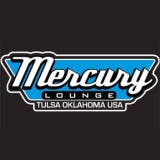
John Fullbright + John Moreland Night 2 - SOLD OUT
Mercury Lounge
∙
Tulsa
Saturday, December 21 at 8 pm CST
Pop
Rock
Concert Venue
Saturday, December 21 at 8 pm CST
Pop
Rock
Concert Venue
Entry Options
Details
Artists
Description
John Fullbright -
“If you can’t say it, you don’t have to,” sings John Fullbright on “Bearden 1645,” the opening track to his new record “The Liar.”
The song details the GRAMMY-nominated songwriter finding refuge in playing the piano, starting as a child and still today. For fans, it may feel like a bit of a rebuttal to “Happy,” the opener from 2014’s “Songs,” one of several in his repertoire that speak explicitly about mining one’s angst in order to make music. In that way, “Bearden 1645” is also a firm nod to the fourth wall: Fullbright knows you’re thinking about his songwriting. He is, too...but not quite the way he was before.
The public at-large hasn’t heard much from the him since the critically lauded “Songs,” a chasm of eight years that seemed unthinkable for someone with so much hype—including a GRAMMY nod, an Americana Music Association Emerging Artist nomination and awards from ASCAP and the Oklahoma Music Hall of Fame—surrounding his early career. Why did it take so long?
“It’s been a process of learning how to be in a community of musicians and less focusing on the lone, depressed songwriter...just playing something that has a beat and is really fun,” Fullbright said. “That’s not to say there are no songs on this record where I depart from that, because there are, but there's also a band with an opinion. And that part is new to me.”
He recorded the album, an exploration of the highs and lows of emotion, the good times and the aftermath, with his band of “usual suspects,” all of them key players in Tulsa’s vibrant music community.
Also in the title track of “The Liar,” we find Fullbright talking to God, again. It’s the soft landing of his lifelong struggle with the concept of God, of accepting tenets of Christianity without believing in its central figure.
He explored this notably in 2012’s “Gawd Above,” where the vengeful title character exacts terror and salvation in equal measure. “Give ‘em wine and song, fire and lust / When it all goes wrong, I’m the man to trust,” Fullbright sang.
In “The Liar,” the power dynamic has shifted. “God, grant me whiskey,” Fullbright sings, “and I promise I’ll be good.” It’s all done with a wink and a nod, less like a prayer and more like a request of Billy Joel’s “Piano Man.”
The sentiment is real, but the words are false. He’s still telling essential truths, which was always his gift, but this time they’re a little more slant. Maybe lying to tell the truth was always the songwriting target. Maybe throwing out some of the rules is what got him there. So is Fullbright, as a songwriter, a liar in his own estimation?
“What I love about songwriting is you're the hero in your own story, most of the time, and I think that's very human,” he said. “But short answer: yes.”
John Moreland -
John Moreland doesn’t have the answers, and he’s not sure anyone does. But he’s still curious, basking in the comfort of a question, and along the way, those of us listening feel moved to ask our own. “I don’t ever want to sound like I have answers, because I don’t,” he says. “These songs are all questions. Everything I write is just trying to figure stuff out.”
Moreland is discussing his new album Birds in the Ceiling, a nine-song collection that offers the most comprehensive insight into the thoughts and sounds swimming around in his head to date. A compelling blend of acoustic folk and avant garde pop playfulness, Birds in the Ceiling lives confidently in a space of its own, enriched by tradition but never encumbered by it. The songwriting that has stunned fans and critics alike since 2015’s High on Tulsa Heat remains potent, while the sonic evolution that unfolds on the record feels like a natural expansion of 2020’s acclaimed LP5.
The New Yorker, Pitchfork, Fresh Air, Paste, GQ, and others have embraced Moreland’s meditative songs, while performances on The Late Show with Stephen Colbert, CBS This Morning, NPR Tiny Desk Concert, and more have introduced Moreland to millions. And yet, while the Tulsa-based Moreland is grateful for the respect and musical conversation he’s now having with people around the world, he is also more focused on the idea of just talking to one person––or even himself. “Through the years, I’ve felt like I’m increasingly talking to myself in my songs, more and more,” he says. “Maybe in the past, I wasn’t aware of it, but now, I am. I think doing that has helped me be less hard on myself, which makes you more generous and compassionate in general.”
That helps explain why even if Moreland is reaching out to someone else, there is no judgment. “I’m in the same boat with whoever I’m talking to,” Moreland says.
Moreland’s songs do feel intimate––like overheard conversations or solitary meditations. “I want to talk one-on-one to someone in a song,” he says. “I don’t want to address a group, really, because I think that’s when it’s easy to start pontificating––and it gets less honest.”
On Birds in the Ceiling, Moreland’s singing contributes to the feelings of hushed intimacy. Wielding a warm, sandpaper soul voice, Moreland got used to singing loudly as he began playing in bars, fighting to be heard over chattering crowds. “When I first started singing, I was very self-conscious about it,” he says. “I think I tried to affect my voice more. Singing loud could be a security blanket sometimes. On the new album, on a lot of the songs I was definitely making a conscious effort to sing quieter––almost whisper.”
Produced by Matt Pence and Moreland, Birds in the Ceiling is dynamic: a folk record that refuses to stay in its lane. It’s the second album for Pence with Moreland, who sees the former––a Denton, Texas-based engineer, producer, and drummer––as an ideal musical partner. “We have a lot of the same influences, and I have been really influenced by his bands,” Moreland says. “It feels really effortless.”
Album opener “Ugly Faces” establishes the new instrumental ground Moreland is covering: piano and acoustic guitar are joined by drum break and percussive electronic chirps then swells as Moreland’s familiar voice delivers questions, observations, and apologies. “I got used to shutting off parts of myself and feeling like, ‘Well, I’m this kind of artist, so this part of me and that part of me don’t fit––I’m going to leave them out,” Moreland says of the record’s arrangements. “On this album, I really just wanted to throw that rule out completely. Anything I’m into or that has moved me is fair game.” Cue 90s roots pop: Moreland mentions Sarah McLachlan and Sheryl Crow as influences, then points to the pioneering sampling from the 80s and 90s, as well as the hooks of Janet Jackson. “I feel like I’m old enough now to say, ‘I love pop,’” he says––then laughs a little.
“Lion’s Den” underscores the pop point: A mathy electronic beat kicks off the song before Moreland’s gorgeous acoustic guitar playing, nimble but lush, sweeps listeners away. The lyrics explore feelings of displacement and connection––then disconnection. “I think most of the album lyrically is about alienation and isolation––really about what my wife and I were going through during the pandemic,” Moreland says. “Not really relating to the pandemic itself so much, but just the circumstances we were both going through with family and friends, which was all colored through this terrifying, dystopian lens.”
Crunchy drum machine claps give way to menacing acoustic guitar on “Cheap Idols Dressed in Expensive Garbage.” Moreland wrote the song after a friend introduced him to a social media account that highlights pastors wearing designer clothes. “It feels like things just continue to get harder for working people,” he says. “It’s hard to afford life these days.”
Moreland points to “Generational Dust”––a moving portrait of the complicated relationship with roots and place––as an album favorite. A gentle showcase of Moreland’s accomplished acoustic guitar playing, “Dim Little Light” taps into the bigness of universal connection and the smallness of individual perspective. While Moreland no longer considers himself religious, the concepts and language picked up during his Bible Belt upbringing emerge in his songs, recast in new, independent musings about self-acceptance, honest questions, and hope––but never as answers. ““At this point in my life, I’m quite comfortable with the mystery of it all,” Moreland says.
“Claim Your Prize” packs a heartbreaking punch, tucked into upbeat guitar strums and a mournful chorus. Moreland’s guitar playing stands out throughout the record. “I wanted to expand my guitar playing on this album,” he says. “I played all the guitars, and I just wanted to approach it with more compositional intent.” The beautiful “Neon Middle June” explores the connection that deepened between Moreland and his wife during the pandemic, when they were “holed up together, home all the time, and it was just weird and lovely.” Pianist John Calvin Abney’s jaw-dropping arrangement and playing happened by chance: He sat down to warm up for the song in the studio, not realizing tape was rolling. The freewheeling, abstract keys perfect the song’s lovely weirdness.
The album’s title track is the graceful closer, pensive, breathtaking, and brimming with hope and gratitude. “The last verse is really about learning not to impose your own essences and projections onto things, and to just let things be what they are,” Moreland says.
Letting things just be what they are is a powerful guiding force for Moreland, determining not just how he interacts with others, but how he treats himself. “When you remove boundaries and instead of holding back parts of yourself––when you say, ‘Okay, I’m going to put all of me into this,’” Moreland says, “You end up making music that nobody else could make.”


